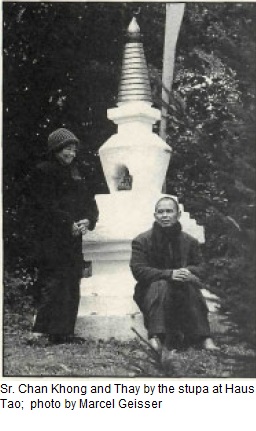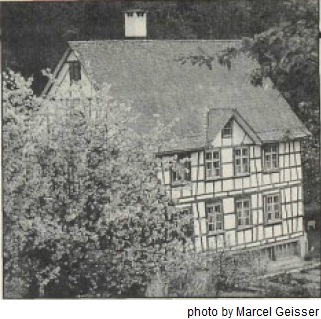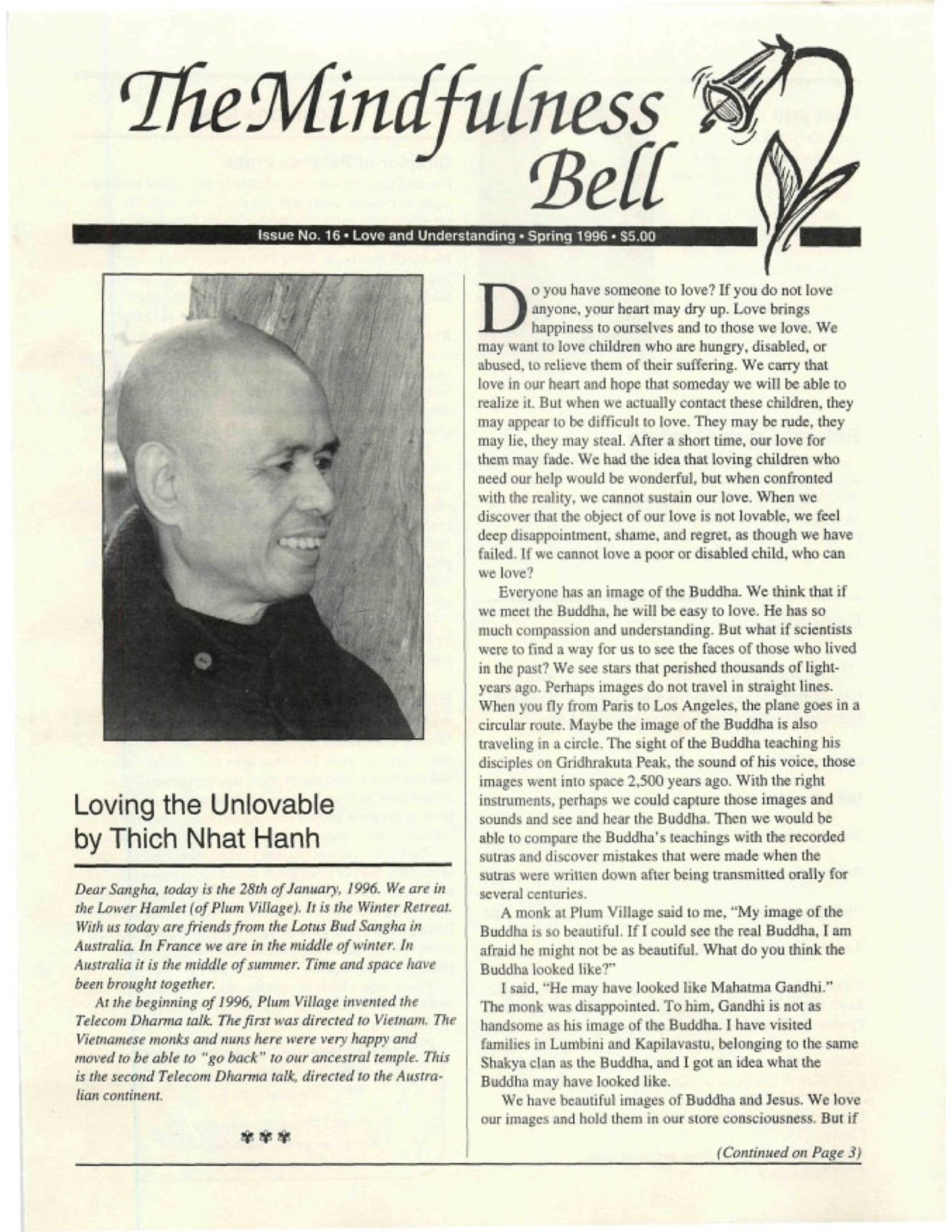Haus Tao/Foundation of Mindful Living Marcel and Beatrice Geisser 9427 Wolfhalden, Switzerland Tel: 41 (71) 44.35.39, Fax: 41 (71) 44.35.35 Email: 101676.1466@compuserve.com
In August 1996, Haus Tao will celebrate its tenth anniversary as a Buddhist meditation center. As the house was built more than 200 years ago, ten years might seem like a short time, but considering the history of Buddhism in Switzerland, it is a great example of the growing interest in Switzerland in the Buddha’s teaching,
Haus Tao/Foundation of Mindful Living Marcel and Beatrice Geisser 9427 Wolfhalden, Switzerland Tel: 41 (71) 44.35.39, Fax: 41 (71) 44.35.35 Email: 101676.1466@compuserve.com
In August 1996, Haus Tao will celebrate its tenth anniversary as a Buddhist meditation center. As the house was built more than 200 years ago, ten years might seem like a short time, but considering the history of Buddhism in Switzerland, it is a great example of the growing interest in Switzerland in the Buddha's teaching, and of the common effort of the local Sangha to create and maintain a practice center.
In the mid-1980s, there were only a small Tibetan and a small Thai Buddhist monastery in Switzerland. Marcel Geisser and many of his friends felt the need to have a center that addressed the issues of lay Buddhists. In 1986, Marcel purchased the property that was to become Haus Tao, which is in the northeast part of Switzerland, 1 1/2 hours from Zurich. His intention was for the house to be communally owned with practice rooted in the Buddhist tradition. After four years of effort, in 1990 Haus Tao was founded as a communally run meditation center based on the Fourteen Precepts of the Order of Interbeing.
Marcel was the main person to begin restoring the house, financing this work by giving seminars in psychotherapy and meditation, as well as by renting the house to other Buddhist teachers and therapists. Although the need for the support of the nationwide Sangha was obvious, it was difficult to rally everyone's energy to create this center. It was only when Marcel was about to sell the property for financial reasons that people began to raise funds to keep it.

In the early 1990s, Thich Nhat Hanh and Sister Chan Khong visited the center several times. It seems like a miracle that since then, the Sangha has been investing in Haus Tao, both financially and with their personal skills, by helping restore the building, sew curtains, and maintain the garden. As there is a growing interest in Thich Nhat Hanh's teachings throughout Europe, the center is now able to support itself.
Haus Tao is near the German-Austrian border, and attracts people from all over German-speaking Europe. The center is open year-round and offers a schedule of morning and evening meditation. The quiet and serene valley surrounding the center supports our practice. When sitting in the meditation hall, we can hear the nearby river and birds singing. Loriana, our guest manager, is the only permanent resident. However, guests come throughout the year to join her in the practice. Haus Tao can accommodate up to 25 people. Marcel, the resident Dharma teacher, and his wife Beatrice, a movement therapist, live nearby and support the Sangha with weekly Dharma discussions and Days of Mindfulness. They lead several retreats a year, including a three-month retreat which will begin November 1. Retreats and seminars include a daily work period and a session in mindful movement, guided by Beatrice. Haus Tao is now in the middle of our first three-year ongoing seminar in Buddhist studies and practice, which gives the 15 participants the opportunity to integrate the knowledge derived from Buddhist texts with personal growth practices. Since 1993 Haus Tao has published InterSein twice a year, which is the German-speaking sister of The Mindfulness Bell.

Marcel is on the executive committee of the International Network of Engaged Buddhists (INEB), and the Sangha networks with INEB members all over the world. In Europe, many people consider Buddhism to be a practice of meditation and theory only. As the idea of engaged Buddhism is still very new, Haus Tao is currently investigating what the social needs in our area are and what are realistic possibilities for developing socially engaged Buddhism in Switzerland. The Sangha may adopt a model similar to the Buddhist Alliance for Social Engagement (BASE) program organized by the Buddhist Peace Fellowship. The Sangha actively networks with Christian groups, who have a long history of social engagement in Europe, and are grateful for all the inspiration and help from open-minded Christians. In the future, Haus Tao wants to put more energy in building a strong neighborhood Sangha.

